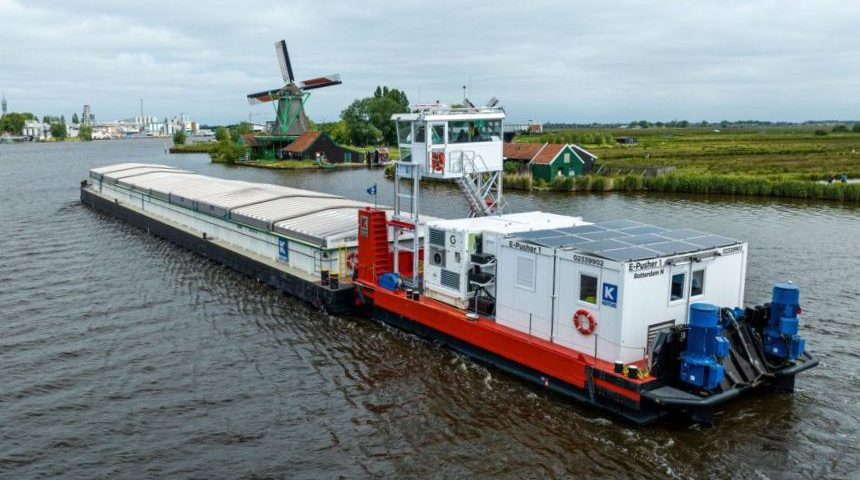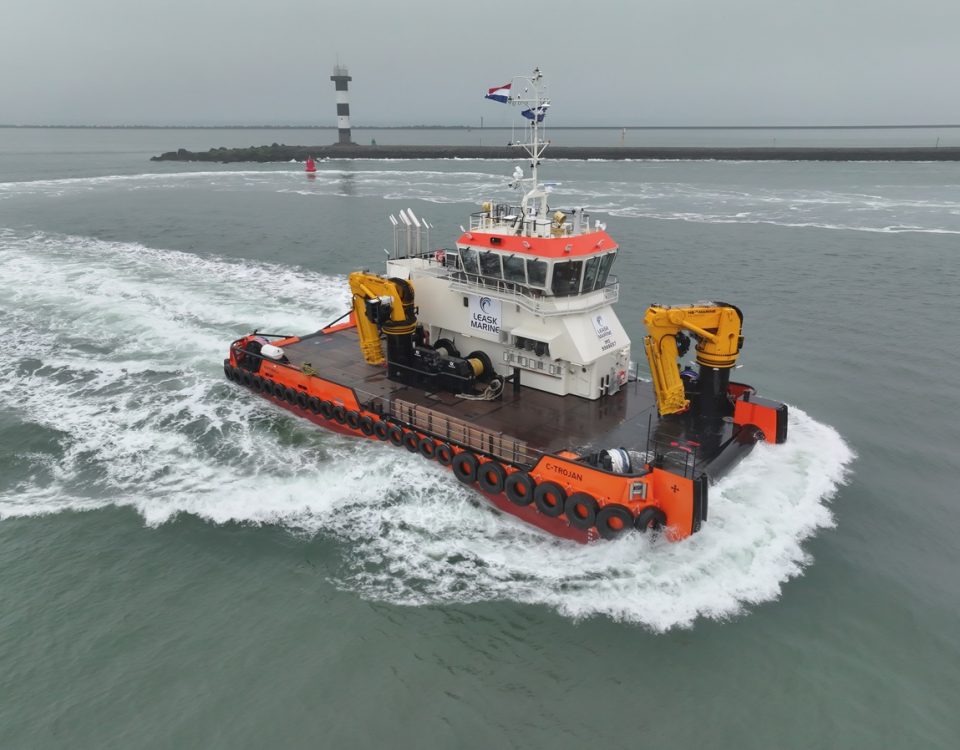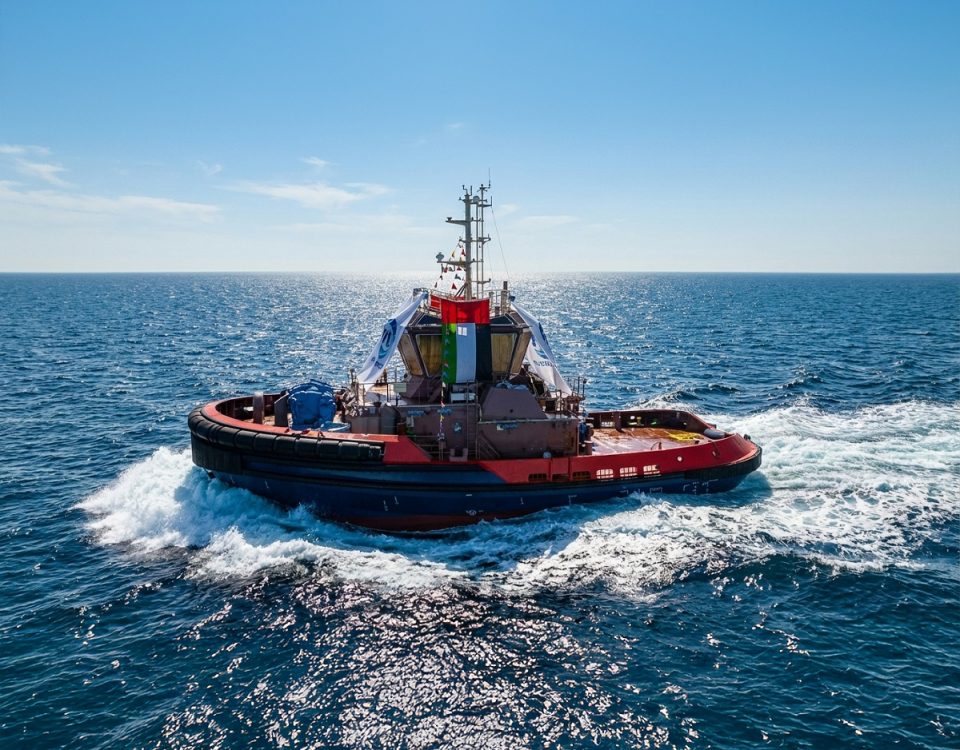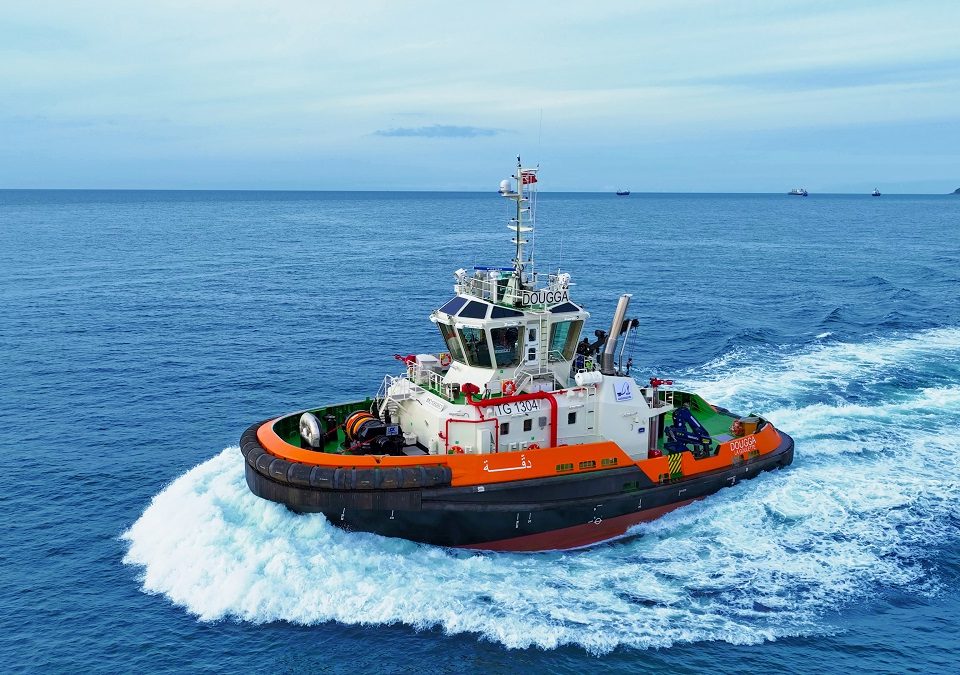This website uses cookies so that we can provide you with the best user experience possible. Cookie information is stored in your browser and performs functions such as recognising you when you return to our website and helping our team to understand which sections of the website you find most interesting and useful.
KOTUG signs framewok agreement with Padmos for construction of complete E-Pusher lineup

SANMAR delivers its 300th tugboat built to Robert Allan Ltd design
05/04/2024
Sanmar’s latest high-powered heavy-duty escort tug is launched
09/04/2024KOTUG International B.V. (‘KOTUG’) proudly announces the signing of a significant framework agreement with Padmos for the construction of the complete E-Pusher lineup, comprising the S, M, and L models. This agreement marks a pivotal milestone for KOTUG, reaffirming the company’s
commitment to supporting the global energy transition and facilitating the modal shift from road transport to waterways.
The framework agreement follows the successful commissioning of the groundbreaking E-Pusher 1 (M model), constructed by Padmos in conjunction with KOTUG. Since June 2023, the E-Pusher 1 has been navigating the waters for Cargill in the North Holland region, transporting cocoa beans from Amsterdam to Zaandam. This fully electric pusher boat, with barges, reduces CO2 emissions by 190,000 kg per year, equivalent to 15,000 single truck trips covering the same distance.
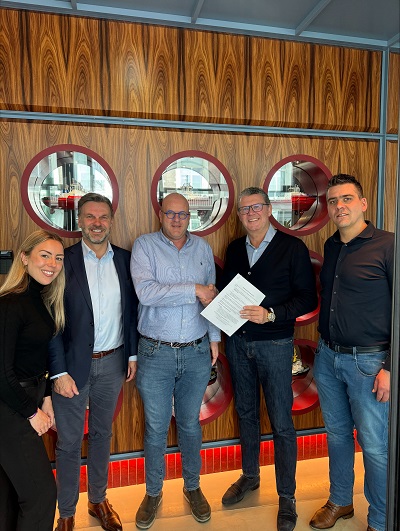
Ard-Jan Kooren, President & CEO of KOTUG International: “Our collaboration with Padmos marks a significant stride towards advancing sustainable maritime practices. The E-Pusher series underscores our commitment to innovation, efficiency, and environmental responsibility.”
Leon Padmos, CEO Padmos: “We are proud to build upon our cooperation with KOTUG in pioneering the construction of the E-Pusher lineup. Our shared vision for sustainable maritime solutions drives this partnership, and we are excited about the transformative impact these vessels will have on the industry.”
The E-Pusher™ Series
The E-Pusher is a modular and scalable electric pusher tug. The E-Pusher Series comprises three models (S, M and L) ranging from 9 to 22 meters in length, with a maximum depth of 0.85 to 1.35 meters, resulting in a draft 30% less than conventional pusher tug designs. The swappable energy
containers encompass Stage V diesel, (Bio)gas, Hydrogen, and battery solutions.
The E-Pusher series embodies state-of-the-art technology and cutting-edge propulsion systems, establishing a new standard in emission-free navigation. The vessels are equipped to eliminate harmful emissions, including carbon dioxide (CO2), sulphuroxides (SOx), nitrogen oxides (NOx), and particulate matter (PM).

